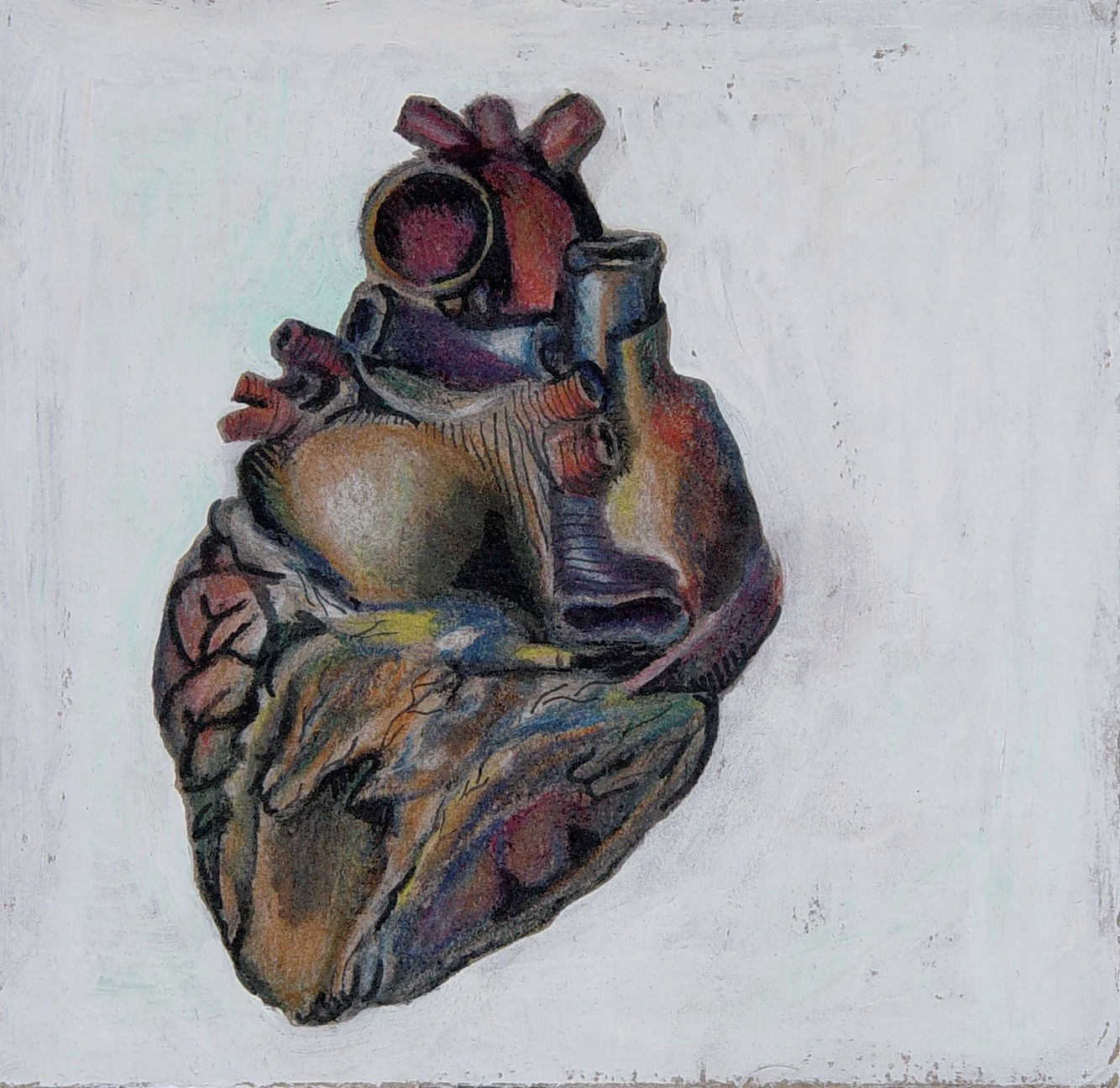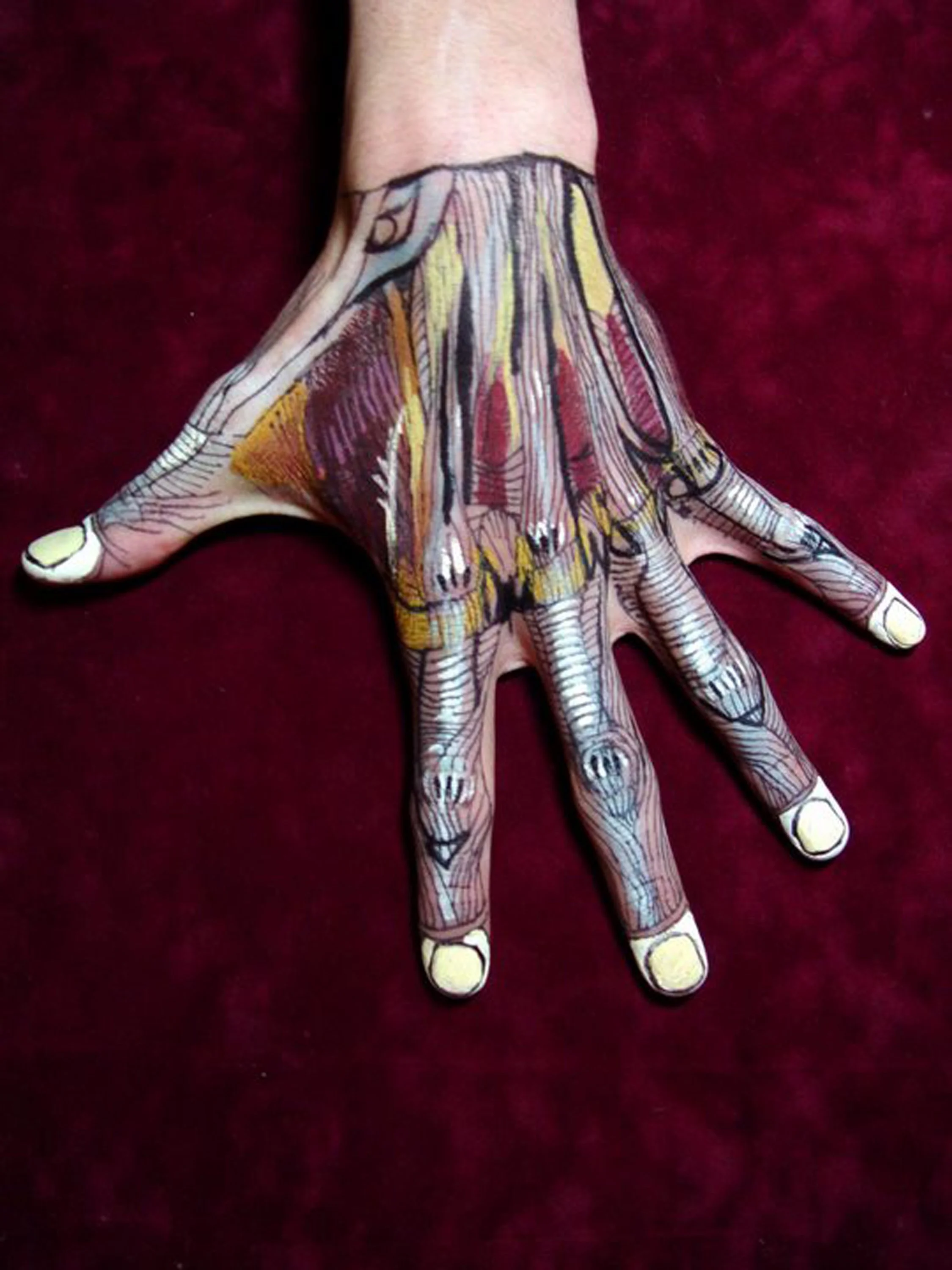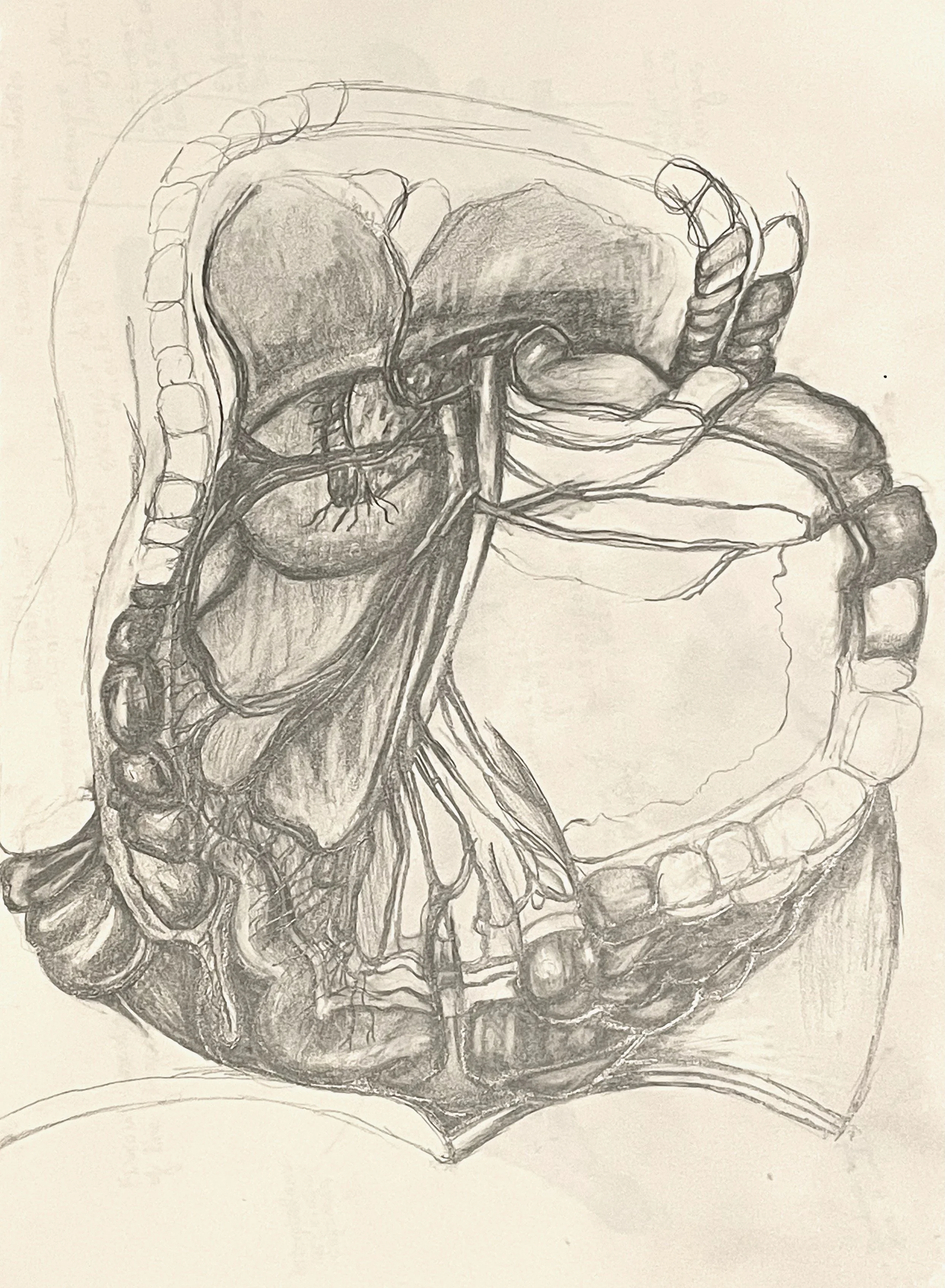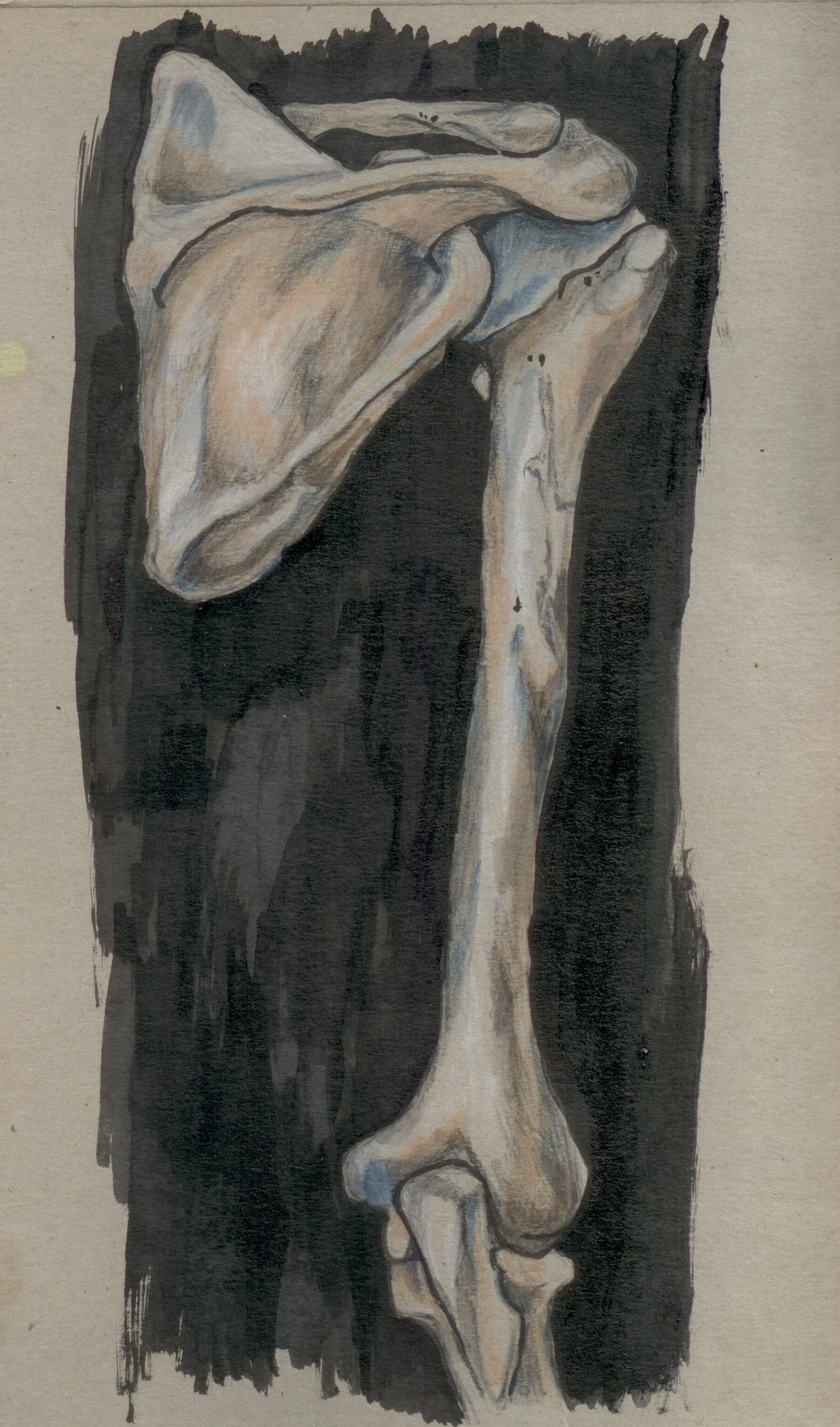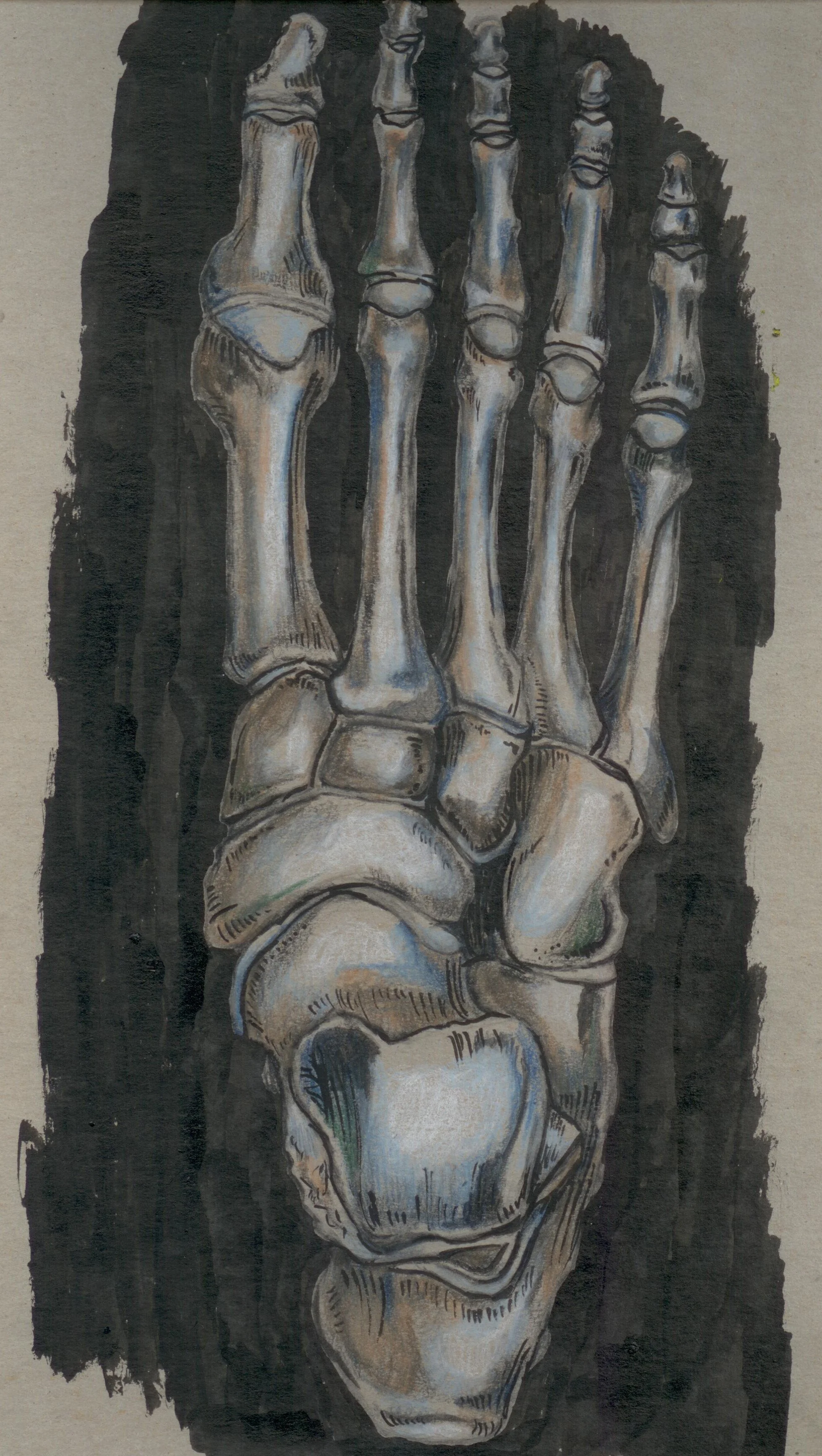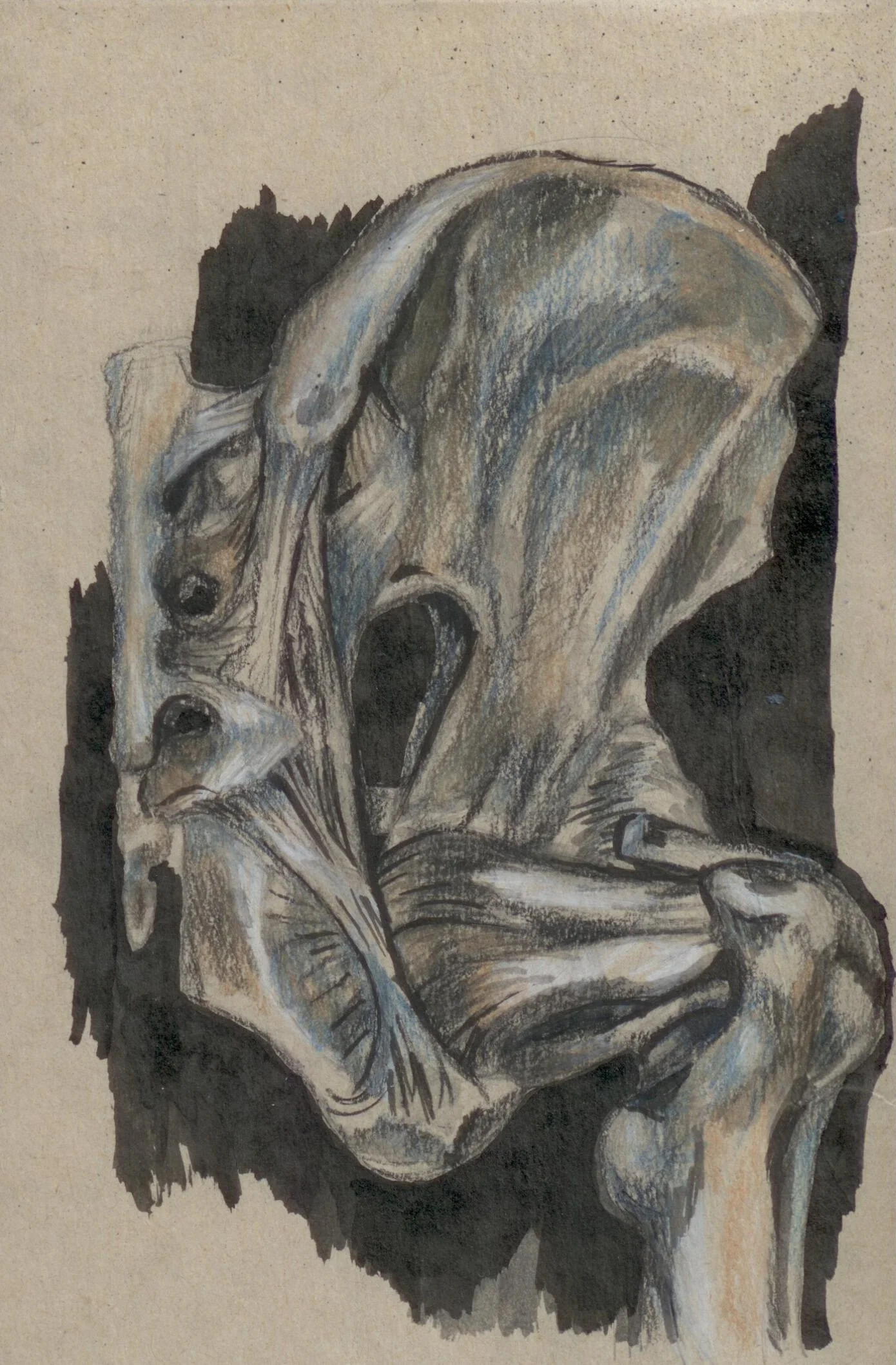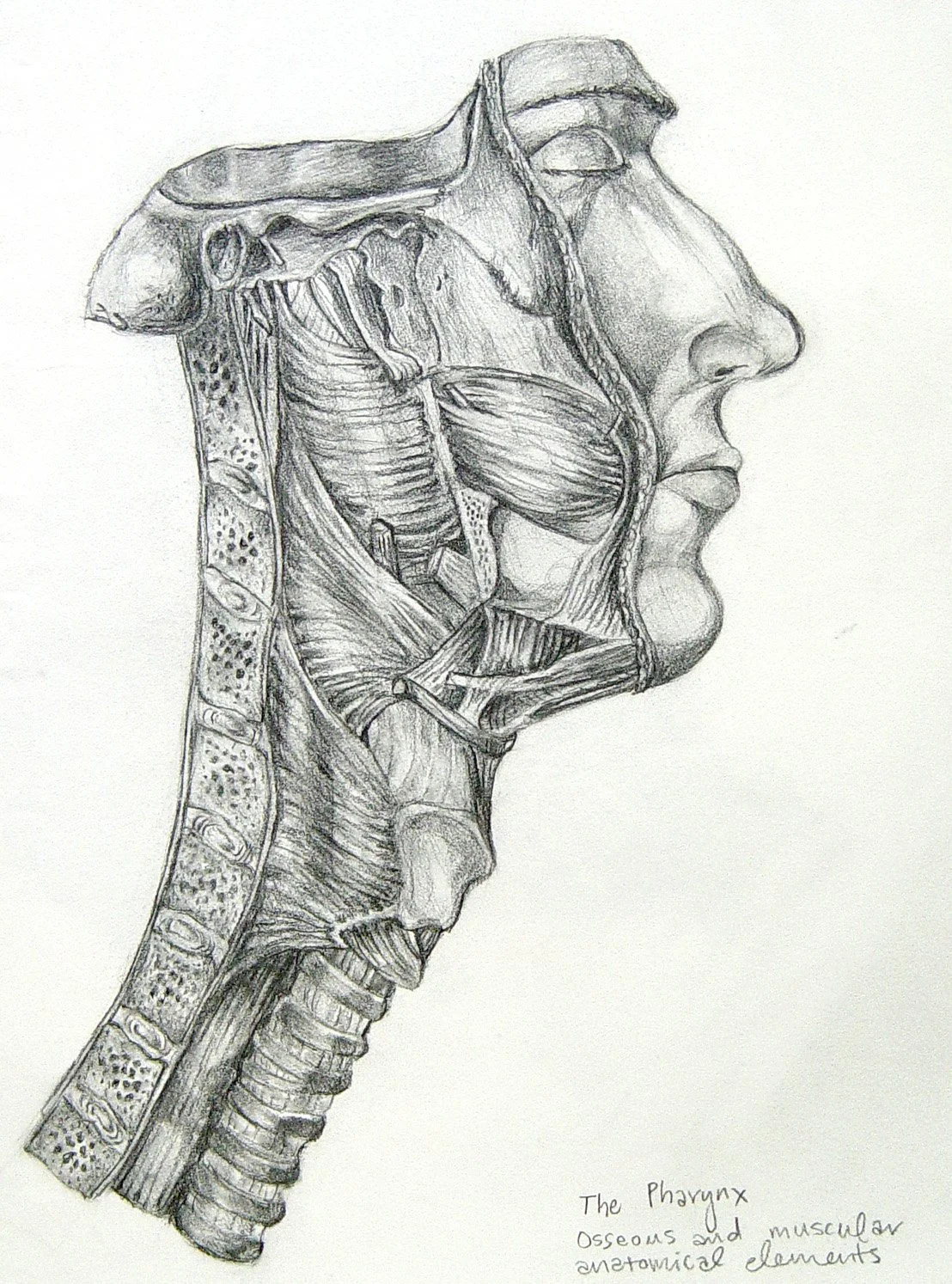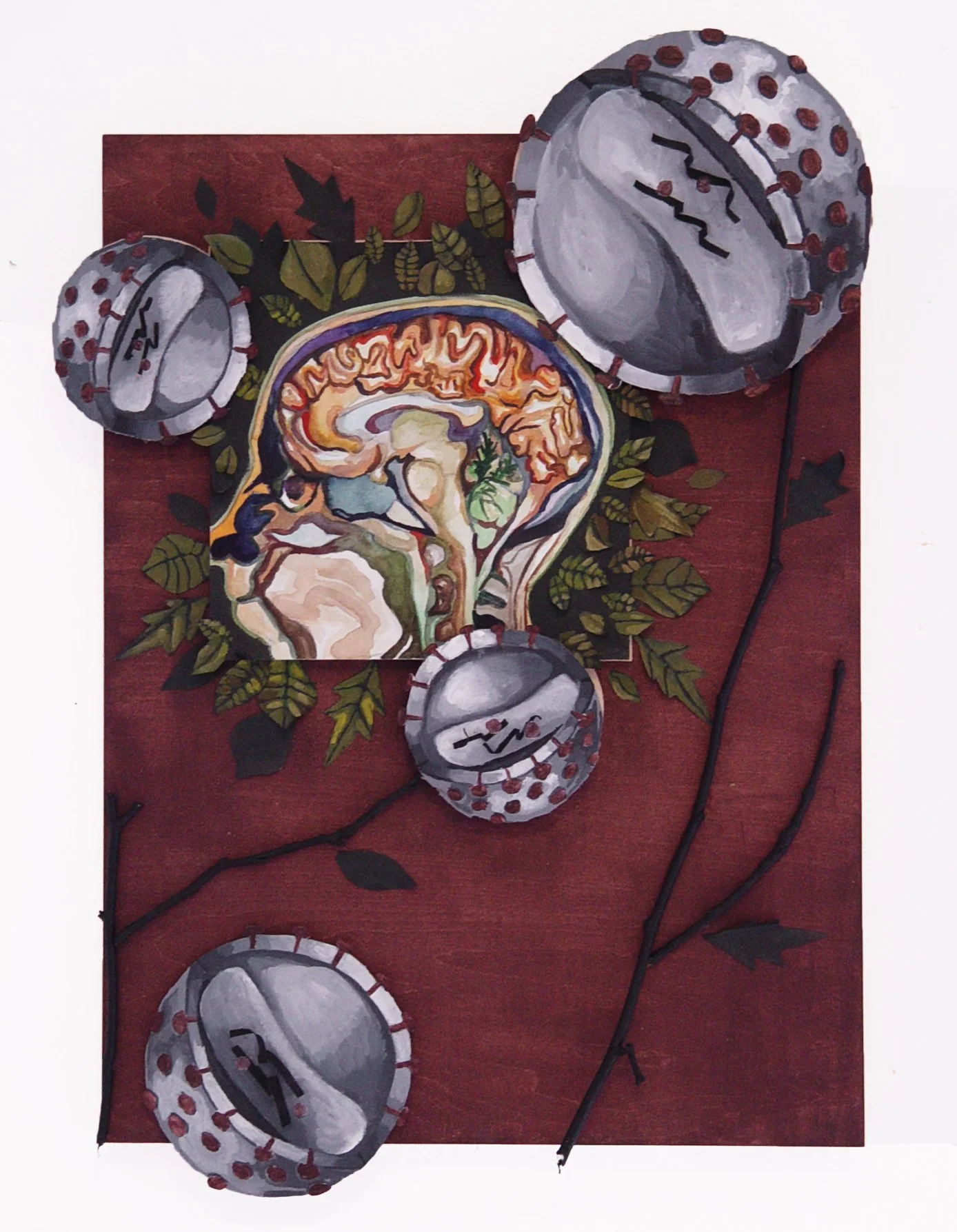Corporeality is an exploration of my experience with chronic illness and the lifelong shame I came to associate with it. I went from one doctor to another, got poked and prodded and medicated, and it made me feel overwhelmingly hopeless and powerless. No one could help me.
I was very lucky to have creative expression as a major source of comfort and catharsis. As a teenager, I mainly processed these experiences through poetry.
Over the years, I became accustomed to feeling unsettled and afraid. Even through all the medical evaluations, I’d received so little information about my condition or instruction on how to treat it.
I unconsciously added “patient” to my list of personal descriptors, which was one indication of the severe anxiety and shame I’d developed surrounding my health. Illness felt like such an impactful part of my past and present. In retrospect, I’ve come to understand that this label may have also offered some reassurance. Approaching and entering young adulthood, I still had such an unsettled and insecure sense of identity; and there was probably solace in grasping onto any way to define myself.
That isn’t to say that my life wasn’t still bursting with profound privilege; I was able to pursue an art major at Brown. I developed the courage to start to externalize my situation by studying, replicating, and then creatively interpreting medical images of human anatomy. I found copying the intricate details and topological quality to be meditative, and was inspired beyond belief by the infinite shapes, patterns, and textures. There would be no end to the literal and symbolic potential of this treasure trove.
I discovered so much relief and delight in uncovering this new ability; I learned to breathe life into a narrative about my early and perpetual exposure to my mortality. Illustrating the parts of my body that felt like enemies allowed me to get some distance from them, reframe them as beautiful in their mystery and fragility, and utilize their power in my life to give power to my art.
